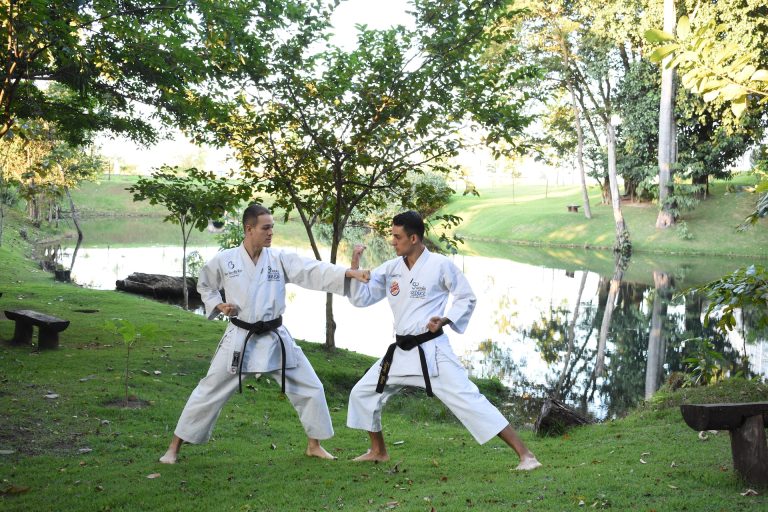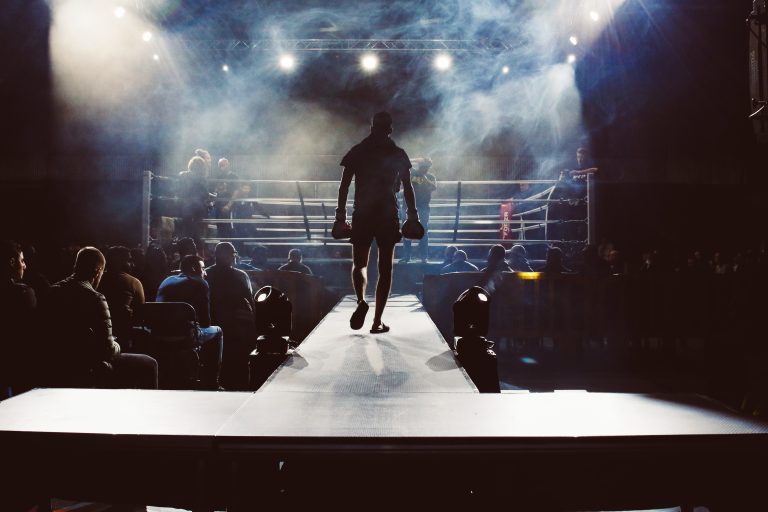Is Karate a Good Sport for Autism?
Autism Spectrum Disorder (ASD) is a neurodevelopmental disorder that affects communication, social interaction, and behavior. People with ASD might find it challenging to interact with others, communicate their thoughts effectively, and have difficulties dealing with unexpected changes. Martial arts, and particularly karate, have become increasingly popular among people with ASD as it can help them in improving self-esteem, confidence, and physical fitness.
In this article, we will explore why karate is a good sport for people with ASD and the benefits it could provide.
What is Karate?
Karate is a form of martial arts that originated in Japan. It involves striking, punching, kicking, and blocking techniques to defend oneself. Karate literally means „empty hand,“ which means that it is a martial art that focuses on using the body’s natural weapons rather than any weapons.
Karate can be practiced as a sport or as a form of self-defense. It is a physically demanding activity that requires strength, speed, and agility. Karate involves a lot of discipline, respect, and focus, making it an excellent activity for people with ASD.
Benefits of Karate for People with ASD
Karate has several benefits for people with ASD, both physical and mental. Let’s take a look at some of the benefits:
Improved Physical Health
Karate involves a lot of movement, which helps improve physical fitness. It helps in building strength, increasing flexibility, and improving cardiovascular health. People with ASD often face challenges in maintaining a healthy weight and having regular exercise, but karate classes can help them overcome these challenges.
Stress Relief
Karate can be a great way to reduce stress and manage aggression. It involves a lot of controlled physical movement and helps in channeling energy in a positive way. Karate classes also focus on breathing and mindfulness, which can help in reducing anxiety and improving mood.
Socialization
People with ASD often struggle with social skills and may find it challenging to interact with others. Karate classes provide an opportunity to socialize with the peers, learn how to communicate effectively, and build friendships. Most karate classes focus on teamwork, discipline, and respect, which are essential life skills.
Sense of Accomplishment
Karate involves a lot of discipline and dedication to master the techniques. People with ASD often face difficulties in finishing tasks or following through with goals. Karate provides a structured environment in which they can set goals, work hard to achieve them, and earn recognition for their efforts. This sense of accomplishment can help in building self-esteem and confidence.
How to Get Started with Karate
If you think that karate could be a good sport for your child with ASD, here are some tips to get started:
Find a Qualified Instructor
Look for a karate instructor who has experience working with people with ASD. They should be patient, understanding, and trained in adapting the lessons to meet individual needs.
Observe a Class
Take your child to observe a karate class to see if they are interested in the activity. It will also give you a chance to see if the instructor is a good fit and if the environment is suitable.
Adjust Expectations
People with ASD might take longer to learn the techniques and may require extra assistance in following the movements. It is essential to have realistic expectations and communicate with the instructor about any specific needs.
Is Karate a Good Sport for Autism?
Autism is a neurological disorder that affects millions of people around the world. It is known to cause difficulties in social interaction, communication and repetitive behavior. However, it has been found that engaging in sports can be highly beneficial for individuals with autism as it helps them to improve their coordination, social skills, and self-esteem. In recent years, karate has become a popular choice of sport for individuals with autism. In this article, we aim to answer some of the most frequently asked questions about whether karate is a good sport for those with autism.
What is autism?
Autism spectrum disorder (ASD) is a developmental disorder that affects communication, behavior, and social interaction. The disorder varies in severity and can range from mild to severe. Autism is diagnosed in one in 54 children in the United States and is more common in boys than girls.
How can karate help individuals with autism?
Karate is a martial art that requires discipline, focus, and physical dexterity. It can help individuals with autism to improve their coordination, balance and motor control. Through karate, individuals with autism can also improve their communication and social skills by interacting with their peers and instructors. The repetitive nature of karate forms and movements can help individuals with autism develop a routine and increase their ability to focus.
How can karate affect individuals with autism emotionally?
Individuals with autism often struggle with self-esteem and self-confidence. Karate can be highly beneficial for the emotional well-being of individuals with autism as it provides a sense of accomplishment and purpose. Through karate, individuals with autism can learn to set goals and reach them, which can contribute to a sense of personal achievement.
Are there any downsides to karate for individuals with autism?
While karate can be highly beneficial for individuals with autism, it is important to note that every individual is different. While some individuals with autism may excel in karate, others may find it overwhelming. It is important to choose a program that is tailored to the individual’s needs and abilities. It is also important to ensure that the instructor is trained to work with individuals with autism and has experience in adapting the program to meet their needs.
What should I look for in a karate program for my child with autism?
When choosing a karate program for a child with autism, it is important to research the program thoroughly. Look for a program with experienced instructors who have experience working with individuals with autism. It is also important to choose a program that is focused on individual progress and not just on belt rank. Look for a program that encourages positive reinforcement and recognizes the individual achievements of each student.
Is Karate a Good Sport for Autism? – A Step-by-Step Guide
Karate is a popular martial art that has been practiced for centuries. It provides individuals with physical, mental, and emotional benefits that help in dealing with everyday life challenges. People on the autism spectrum can significantly benefit from joining a karate class; it can help them develop better motor coordination, improve their social skills, enhance their confidence, and control their impulses.
If you are considering karate for someone with autism, here is a step-by-step guide on how to go about it.
Step 1: Identify the Right Instructor
The first thing you need to ensure is that the instructor you choose is competent and qualified to work with individuals with autism. Look for an instructor who has worked with kids on the spectrum before and has the knowledge and experience to understand their unique needs. You can attend a few classes to observe how the instructor works with students with special needs to determine if they are a good match.
Step 2: Assess the Individual’s Abilities
It’s essential to assess the individual’s abilities and determine what type of class will suit them best. Many karate schools offer different programs based on age, skill level, and abilities. It’s worth noting that not everyone with autism will be interested in karate, and it’s best to ask the individual to try it out before committing to regular classes.
Step 3: Talk to the Instructor
Once you have identified the right instructor and assessed the individual’s abilities, it’s time to speak to the instructor. Discuss your concerns, and let them know that the individual is on the autism spectrum. Talk about what you hope the individual will gain from the classes, such as developing strength, coordination, and confidence.
Step 4: Prepare the Individual for Classes
Preparing the individual for classes is crucial to make the experience smooth and stress-free. Create a routine of visiting the dojo, so they become familiar with the environment. Show them videos or pictures of karate classes to help them understand what to expect. You can also practice some of the basic movements with them to help them get familiarized with the techniques.
Step 5: Attend Classes and Be Supportive
Finally, once everything is in place, it’s time to attend the classes. Be supportive throughout the process and encourage the individual to keep practicing. Attend the classes with them initially, so they feel more comfortable. It’s crucial to focus on the individual’s progress and not compare them to other students in the class. Even small progress should be celebrated and recognized.
Conclusion
In conclusion, karate is an excellent sport for individuals with autism. It provides them with the opportunity to develop social skills, improve their motor coordination, and enhance their self-esteem. Following the steps outlined above can help you identify the right instructor and prepare the individual to enjoy the full benefits of karate classes. Remember to be patient throughout the process, and always celebrate the individual’s progress.
Inhaltsverzeichnis






